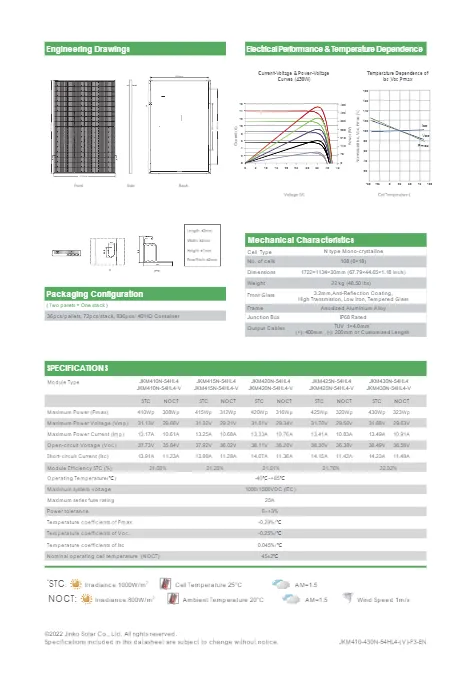solar panel system for home
Solar Panel Systems for Home Harnessing Renewable Energy
In recent years, solar panel systems have gained immense popularity among homeowners looking to reduce their energy bills and contribute to environmental sustainability. By converting sunlight into electricity, solar panels provide a clean and renewable energy source that can significantly decrease reliance on fossil fuels. This article explores the benefits, components, and considerations of installing a solar panel system for your home.
Benefits of Solar Panel Systems
One of the primary advantages of solar panel systems is the potential for substantial savings on energy costs. By generating electricity from sunlight, homeowners can reduce their dependence on traditional energy suppliers, leading to lower utility bills. In many cases, surplus electricity generated during sunny days can be sold back to the grid, providing an additional financial incentive.
Another significant benefit is the positive impact on the environment. Solar energy is a clean, renewable resource, unlike fossil fuels, which contribute to greenhouse gas emissions. By transitioning to solar energy, homeowners can significantly reduce their carbon footprint and play a role in combating climate change.
Additionally, many governments and local authorities offer incentives for installing solar panels, such as tax credits, rebates, or grants. These financial incentives can help offset the initial installation costs, making solar energy more accessible for homeowners.
Components of a Solar Panel System
A typical solar panel system consists of several key components. The most visible part is the solar panels themselves, which convert sunlight into direct current (DC) electricity. These panels are usually mounted on rooftops, but they can also be installed in open spaces on the ground.
solar panel system for home

The DC electricity produced by the solar panels is then directed to an inverter, which converts it to alternating current (AC) electricity, making it usable for home appliances. Some homeowners may also opt for battery storage systems, allowing them to store excess energy for use during the night or on cloudy days.
Lastly, a monitoring system tracks the performance of the solar panel system, providing homeowners with insights into their energy production and consumption.
Considerations Before Installation
Before deciding to install a solar panel system, homeowners should assess various factors. First, it is essential to evaluate the location and structure of the home. Roof orientation, angle, and shade from trees or adjacent buildings can impact the efficiency of solar panels. Homes with adequate sunlight exposure are generally the best candidates for solar energy systems.
Additionally, potential installers should research state and local regulations regarding solar energy systems. Some areas may have zoning laws or restrictions that affect installations. It’s also prudent to consult with professional installers to obtain estimates and evaluate the most suitable type of system for individual needs.
Conclusion
In conclusion, solar panel systems offer a viable solution for homeowners looking to embrace renewable energy while also enjoying the financial and environmental benefits associated with it. With the right setup and careful planning, solar energy can become a pivotal part of reducing household energy expenses and contributing to a cleaner, more sustainable future. As technology advances and awareness increases, solar energy is poised to play a significant role in the energy landscape of our homes for years to come.
-
String Solar Inverter: The High-Efficiency Solution for Smart Solar EnergyNewsJul.14,2025
-
Revolutionizing Rooftop Energy with the Power of the Micro Solar InverterNewsJul.14,2025
-
Power Independence with Smart Off Grid Solar Inverter SolutionsNewsJul.14,2025
-
On Grid Solar Inverter: Powering the Future with Smart Grid IntegrationNewsJul.14,2025
-
Monocrystalline Solar Panels: High-Efficiency Power for the Future of Clean EnergyNewsJul.14,2025
-
Bifacial Solar Panel: A Smarter Investment for Next-Generation Energy SystemsNewsJul.14,2025







